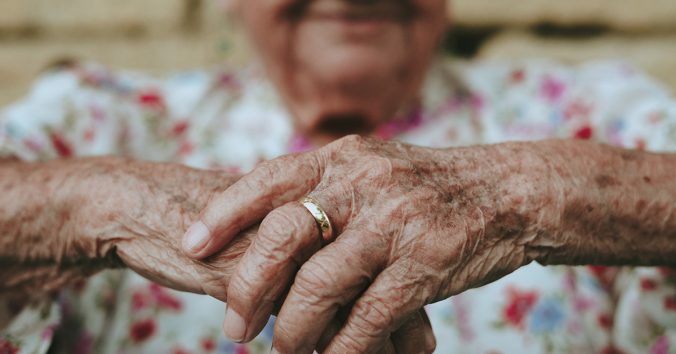The proportion of elderly people in the population is increasing and the tendency is to provide care for the elderly at home as long as possible. Nursing homes are therefore usually inhabited by the very weakest, with several concurrent illnesses and often in need of palliative care.
Living a dignified life in old age naturally becomes more difficult when the body and mind fail and you become increasingly dependent on others. As a nursing home resident, it can be close at hand to feel unworthy and a nuisance. And as staff, in stressful situations it can happen that you sometimes thoughtlessly treat the elderly in an undignified manner.
Preserving the dignity of the elderly is an important responsibility of nursing homes. But what does reality look like for the residents? How does the care provider take responsibility for dignified care? And is it reasonable to regard the residents as passive recipients of dignified care? Isn’t such a view in itself undignified?
These questions suggest that we need to look more closely at the reality of the elderly in a nursing home. Bodil Holmberg has done this together with Tove Godskesen, in a study published in the journal BMC Geriatrics. Participatory observations and interviews with residents and staff at a nursing home in Sweden provided rich material to analyse and reflect on.
As expected, it was found that the major threat to the residents’ dignity was precisely how the body fails at a faster rate. This created fear of becoming increasingly dependent on others as well as feelings of anguish, loneliness and meaninglessness. However, it was also found that the elderly themselves had a repertoire of ways to deal with their situation. Their self-knowledge enabled them to distinguish between what they could still do and what they had to accept. In addition, aging itself gave rise to new challenges to engage with. One of the residents proudly told how they had developed a way to pick up the grabbing tong when it had been dropped, by sliding deeper into the wheelchair to reach the floor. Teaching new staff how to carry out intricate medical procedures also gave rise to pride.
As aging challenges a dignified life, older people thus develop self-knowledge and a whole repertoire of ways to maintain a dignified life. This is an essential observation that the authors make. It shows the importance of not considering nursing home residents as passive recipients of dignified care. If I understand the authors correctly, they suggest that we could instead think in terms of assisting older people when their bodies fail: assisting them in their own attempts to lead dignified lives.
Participatory observations and interviews can help us see reality more clearly. The method can clarify both the expected and the unexpected. Read the pertinent article here: Dignity in bodily care at the end of life in a nursing home: an ethnographic study
The authors also found examples of undignified treatment of the residents. In another article, also from this year, they discuss barriers and facilitators of ethical encounters at the end of life in a nursing home. Reference to the latter article can be found below.

Written by…
Pär Segerdahl, Associate Professor at the Centre for Research Ethics & Bioethics and editor of the Ethics Blog.
Holmberg, B., Godskesen, T. Dignity in bodily care at the end of life in a nursing home: an ethnographic study. BMC Geriatr 22, 593 (2022). https://doi.org/10.1186/s12877-022-03244-8
Holmberg, B., Godskesen, T. Barriers to and facilitators of ethical encounters at the end of life in a nursing home: an ethnographic study. BMC Palliat Care 21, 134 (2022). https://doi.org/10.1186/s12904-022-01024-0
Ethics needs empirical input


